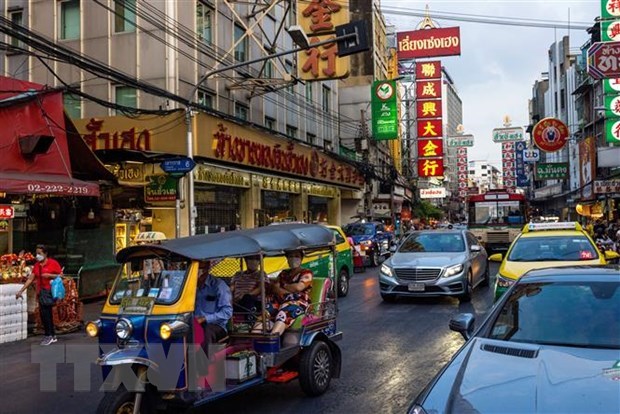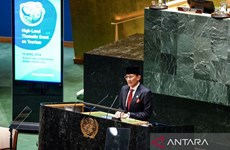Thailand’s new strategies to attract foreign investors unveiled
 A street in Bangkok, Thailand. (Photo: AFP/VNA)
A street in Bangkok, Thailand. (Photo: AFP/VNA)Bangkok (VNA) – The Thai Board of Investment (BoI) on February 14 unveiled its strategies to attract foreign investors over the next three to five years.
BoI Secretary-General Narit Therdsteerasukdi said the board's strategies are in line with the country's long-term socio-economic development plans and they support manufacturing and industrial sectors so that local and foreign companies can develop the foundation for their growth in Thailand.
Under the new strategies, BoI plans to focus more on promoting the bio-circular-green economic model, electric vehicles, and digital and creative businesses.
Bangkok will play a key role in convincing foreign investment and global companies to set up regional hubs thanks to its advantage of electric trains serving all areas of the city and its vicinity, including airports and ports.
According to Narit, countries and businesses looking to draw investment are facing challenges, including carbon dioxide emissions, geopolitical conflicts, shortages of raw materials, technological disruption, epidemics, and an ageing population.
However, Thailand has advantages as it is located in the centre of Southeast Asia, not largely affected by the US-China trade war.
The country has fewer conflicts with other nations, and possesses a flexible supply chain, said Narit.
He added that Thailand also proved its ability to handle crises like the pandemic and supply renewable energy.
Businesses should follow new investment trends such as diversification, green investments, and smart manufacturing, he said, adding that foreign direct investors tend to consider factors such as availability of infrastructure and logistics, qualified personnel, regulations favourable to the business sector, supporting industrial bases, reasonable costs and government benefits.
He said the private sector and government agencies should introduce measures such as reskilling and upskilling their workforces, raising the level of Thai industry to a smart and sustainable basis, and strengthening and creating business opportunities for small and medium-sized enterprises (SMEs) and startups.
Meanwhile, large companies should be encouraged to play a greater role in three areas of human development, SME development, and community development./.












